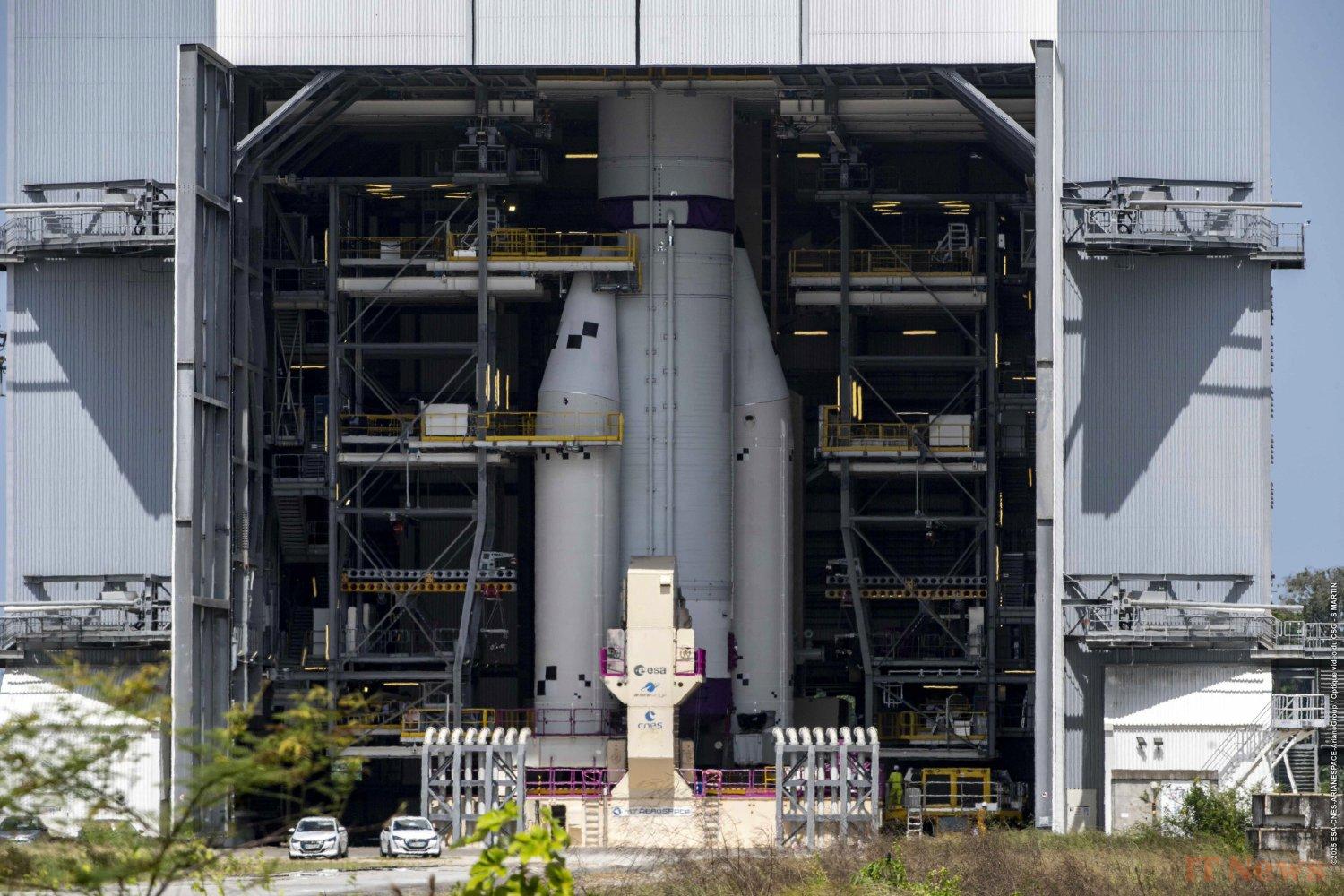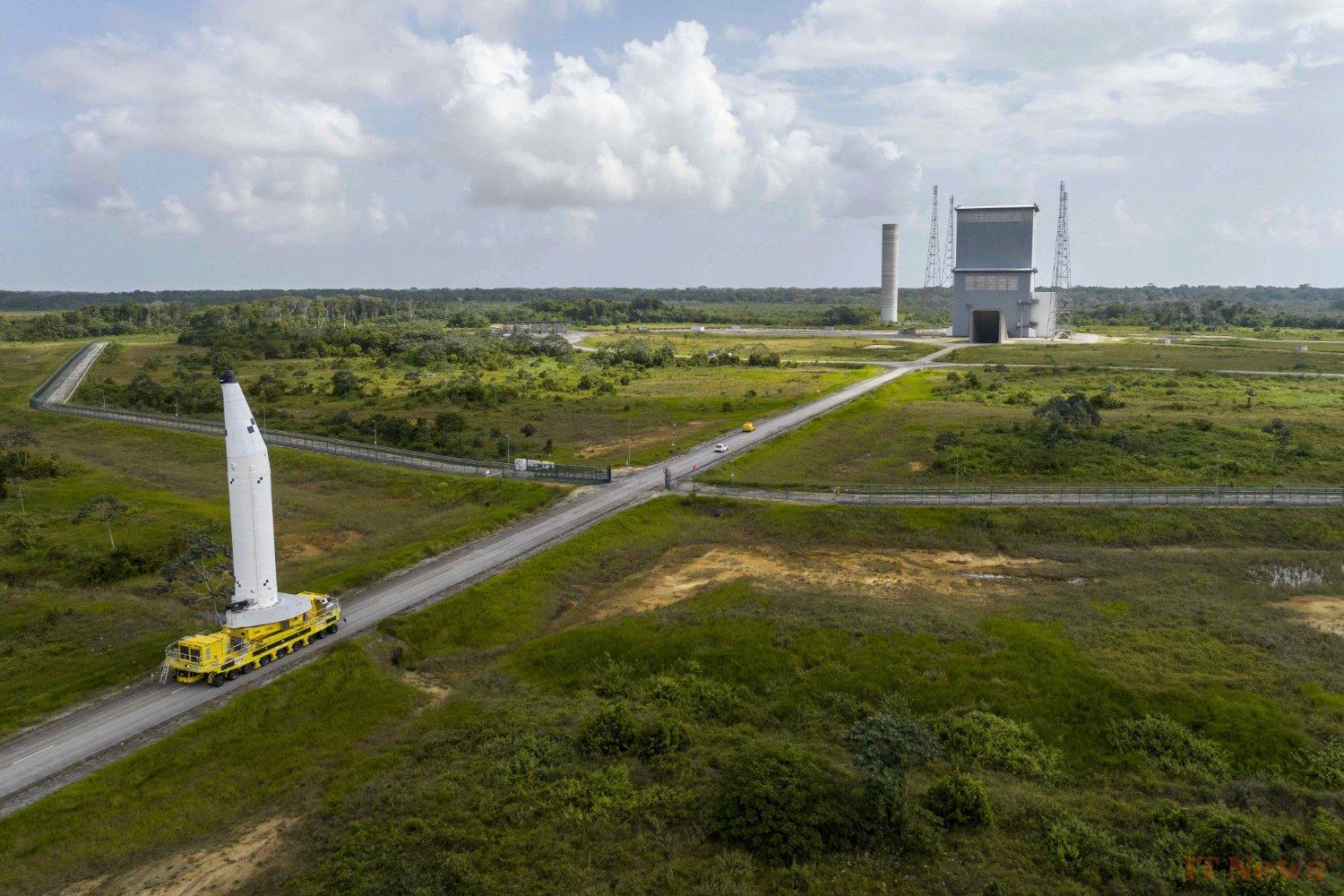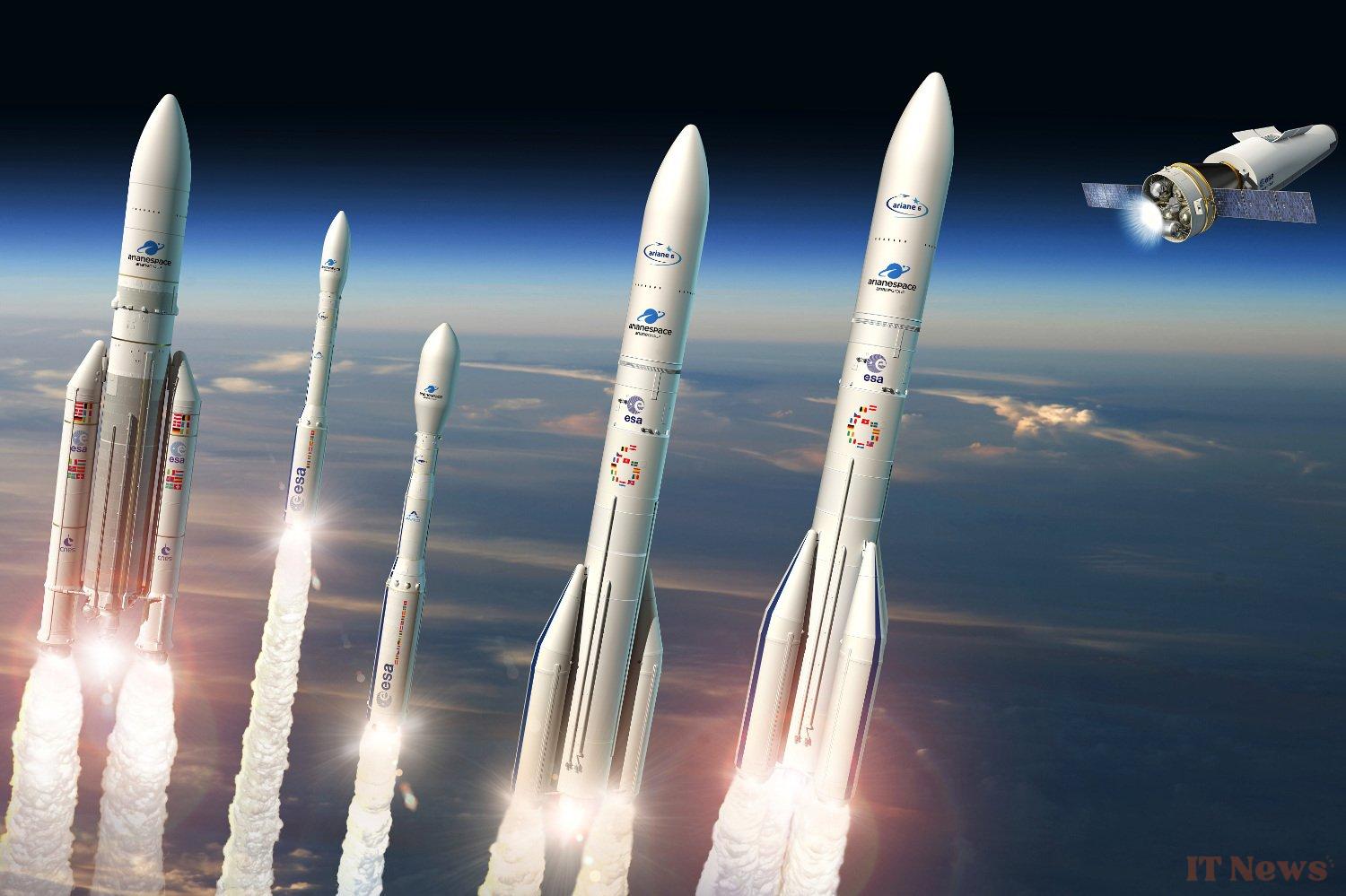Initially scheduled for December 2024, the second launch of the Ariane 6 rocket is now planned between mid-February and the end of March. In Kourou, French Guiana, the main body of the rocket manufactured in France and Germany arrived in the assembly building, before heading to the launch pad located 800 meters away. The main stage was raised on January 15, and the upper stage should be assembled in the coming days.
CSO-3, the French spy satellite that is to integrate the fairing of the Ariane 6 rocket for this second mission, also arrived in Kourou on January 15. All the equipment therefore seems to be ready for a launch on time, even if the problems of the first Ariane 6 mission could still have the effect of postponing the mission, and therefore the rest of the European space calendar. The latter includes a total of five launches by 2025.
The second flight of the Ariane 6 rocket is also its first to be commercial, and will therefore respond to an order from the DGA, the General Directorate of Armaments on behalf of the Ministry of the Armed Forces. The launch of CSO-3 is the third satellite in the Optical Space Component program, a constellation of three satellites dedicated to Earth observation for defense and security.
A potential launch of the Ariane 64 version in 2025
During 2025 and the five launches of Ariane 6, Europe could inaugurate Ariane 64, the version of its launcher with 4 boosters. While we imagined it postponed to 2026, the latter should take place during the second half of the year, for a mission with Intelsat and the sending of a geostationary satellite, into an orbit located 36,000 kilometers from Earth. The interest of the four boosters is this: to be able to send payloads into an orbit further than low orbit. The rocket will have 1,400 tonnes of thrust, compared to 1,300 tonnes previously on Ariane 5, in the same configuration with four boosters.
While the space news mainly revolves around SpaceX and Blue Origin, Europe is in sharp contrast with a particularly reduced schedule (it was of 8 launches at the time of the inauguration of Ariane 6). But the new launcher seeks above all to give Europe back its American independence for sending satellites into orbit. It remains to be seen whether the project will one day result in certification to carry astronauts into space as well. For this, Europe will certainly have to count on its startups, such as The Exploration Company, founded in 2021, and working with two Franco-German teams, between Munich and Bordeaux.





0 Comments